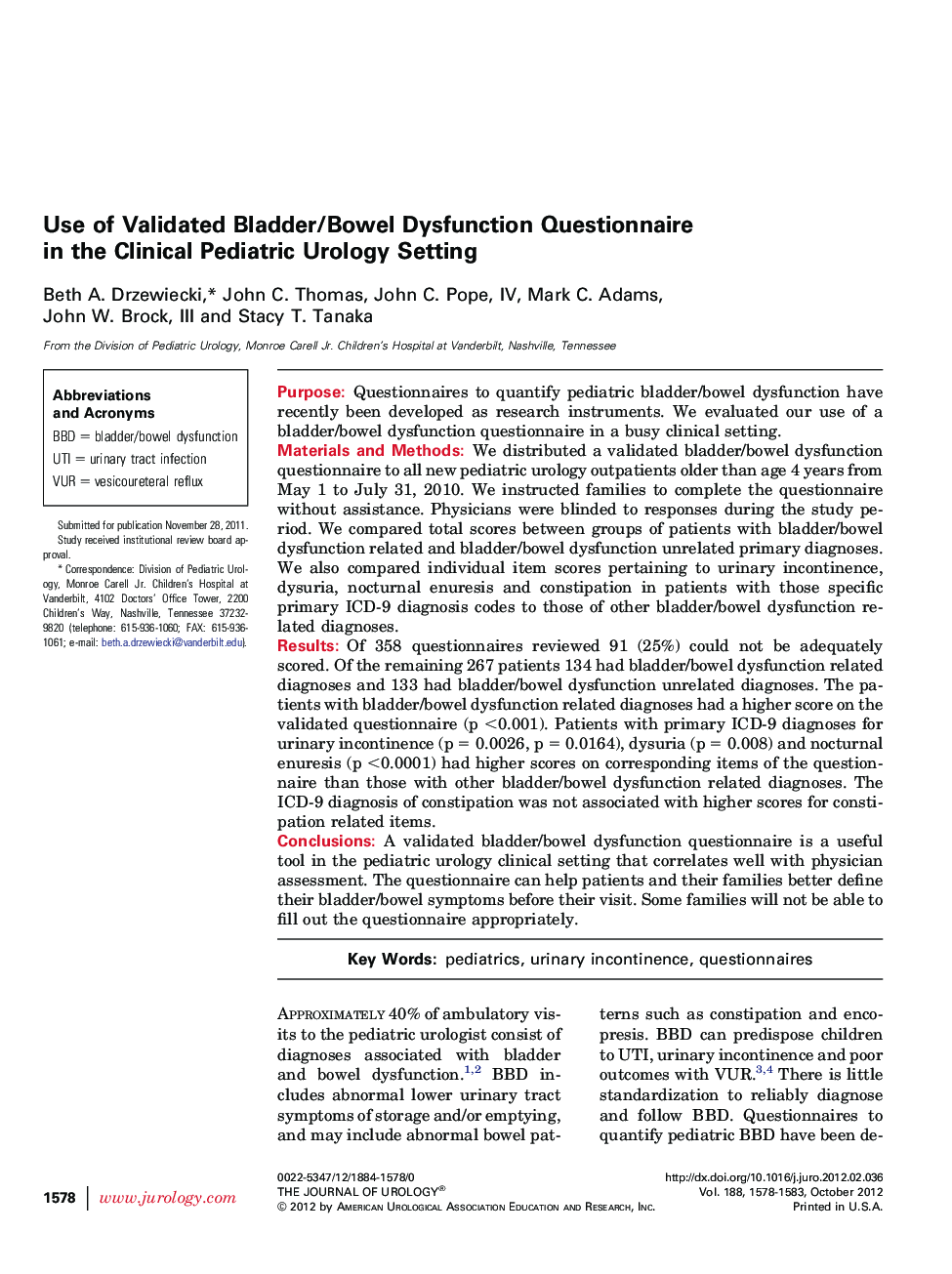| Article ID | Journal | Published Year | Pages | File Type |
|---|---|---|---|---|
| 3867514 | The Journal of Urology | 2012 | 6 Pages |
PurposeQuestionnaires to quantify pediatric bladder/bowel dysfunction have recently been developed as research instruments. We evaluated our use of a bladder/bowel dysfunction questionnaire in a busy clinical setting.Materials and MethodsWe distributed a validated bladder/bowel dysfunction questionnaire to all new pediatric urology outpatients older than age 4 years from May 1 to July 31, 2010. We instructed families to complete the questionnaire without assistance. Physicians were blinded to responses during the study period. We compared total scores between groups of patients with bladder/bowel dysfunction related and bladder/bowel dysfunction unrelated primary diagnoses. We also compared individual item scores pertaining to urinary incontinence, dysuria, nocturnal enuresis and constipation in patients with those specific primary ICD-9 diagnosis codes to those of other bladder/bowel dysfunction related diagnoses.ResultsOf 358 questionnaires reviewed 91 (25%) could not be adequately scored. Of the remaining 267 patients 134 had bladder/bowel dysfunction related diagnoses and 133 had bladder/bowel dysfunction unrelated diagnoses. The patients with bladder/bowel dysfunction related diagnoses had a higher score on the validated questionnaire (p <0.001). Patients with primary ICD-9 diagnoses for urinary incontinence (p = 0.0026, p = 0.0164), dysuria (p = 0.008) and nocturnal enuresis (p <0.0001) had higher scores on corresponding items of the questionnaire than those with other bladder/bowel dysfunction related diagnoses. The ICD-9 diagnosis of constipation was not associated with higher scores for constipation related items.ConclusionsA validated bladder/bowel dysfunction questionnaire is a useful tool in the pediatric urology clinical setting that correlates well with physician assessment. The questionnaire can help patients and their families better define their bladder/bowel symptoms before their visit. Some families will not be able to fill out the questionnaire appropriately.
